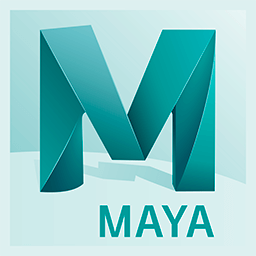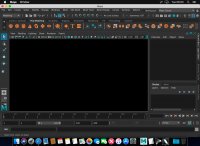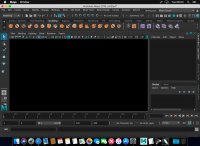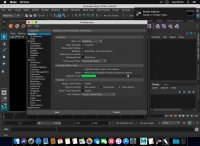Autodesk Maya 2019.3

The Autodesk products team is pleased to announce the availability of Maya 2019. This release focuses on letting you work faster than ever before through new workflows and numerous performance enhancements.
Maya is 3D computer animation software with powerful modelling, rendering, simulation, texturing and animation tools for vfx artists, modellers and animators. Maya helps artists tell their story with one fast, creative toolset.
Adaptive foam in Bifrost
Add froth, foam, and bubbles (“whitewater”) to liquid simulations, creating even more realism and detail in scenes with oceans, beaches, lakes, and stormy seas. Create high-resolution simulations close to the camera, where detail is essential, while lowering the computation of foam particles in other areas. The result: shorter simulation times.
Faster, easier-to-use XGen
An all-new presets workflow enables you to quickly share looks between meshes by applying premade grass or hairstyles to the meshes for an improved starting point. The XGen library now includes presets previously included for Maya Fur, and allows you to build a library of descriptions with custom thumbnails. So you don't have to rebuild them from scratch every time.
Guided simulation in Bifrost
Drive the behavior of liquids using a cached simulation or an animated mesh object. With a guided simulation, use a full-depth, low-resolution simulation to guide a high-resolution simulation on the liquid's surface. Use guided simulation for carefully art-directed hero waves and similar effects. You can perform multiple iterations at high resolution while retaining the basic look and motion of the underlying guiding simulation.
Adaptive Aero solver in Bifrost
Create atmospheric effects such as smoke and mist. Aero produces simulations of higher detail and greater physical accuracy than Maya Fluid Effects. As with guided simulation, low resolution aero solves can drive higher resolution detail. The added benefit of adaptivity means that you can define regions of high resolution within a massively large computational domain.
Parallel rig evaluation
Increase the speed of character rig playback and manipulation. This new, multithreaded system distributes computation amongst existing cores and graphics processors in your computer. A new GPU-based mechanism performs deformations on your graphics hardware within Viewport 2.0. Create customized GPU-accelerated deformers with the provided APIs, and understand and target bottlenecks in scenes and plug-ins with the integrated performance profiler.
Delta Mush deformer
Smooth deformation to help guide the final result closer to the original geometry. Use Delta Mush in many different workflows, such as paint-free skinning, smoothing of coarse simulation results, and shot post corrections. A popular user request.
New sculpting toolset
Sculpt and shape models more artistically and intuitively. The new sculpting toolset represents a huge upgrade over previous editions. The new sculpting tools offer more detail and resolution. The brushes feature Volume and Surface falloff, stamp images, sculpting UVs, and support for vector displacement stamps.
Enhanced game engine workflows
Move from Maya to game engines such as Unity, Unreal, or Autodesk Stingray with simplified and streamlined game exporter workflows.
Enhanced look development workflow
We've made building and editing materials in the Hypershade more artist-friendly and intuitive, with simpler workflows and a revamped user interface. A rebuilt node-editing interface makes it easier to connect, arrange, and work with shading components. New workflows enable you to visualize and diagnose complex shading graphs. Customize your UI for the way you work; new layout tabs allow you to work with shading graphs in a far more organized way.
Color management
Preserve creative intent throughout lighting and rendering workflows with a sophisticated color management system. Use the simple linear workflow provided out of the box, or customize the system to suit your color pipeline. Image handling is consistent and color-safe across The Foundry's NUKE software, Photoshop, Autodesk Creative Finishing solutions, and other applications.
What's New:
Maya 2019:- A myriad of improvements to Viewport 2.0 enhance its performance when doing everything from loading scenes to selecting objects, to handling dense meshes.
- Additionally, cached playback speeds up your ability to preview animation changes by intelligently redrawing only what's changed rather than updating the entire scene. This greatly improves viewport playback performance, removing the need to constantly playblast your scenes.
- This release also gives you the most powerful tools yet for tracking exactly how Maya is using your computer's resources. New features in the Evaluation Toolkit and Profiler allow you to pinpoint exactly where there may be inefficiencies or problems that are slowing down your scene.
- Improvements to Render Setup enable you to better organize your render layers by coloring and isolating them in the Render Setup editor, or by controlling whether lights are included in each layer by default. In addition, more options are available for exporting and importing scene Render Settings and AOVs.
- You can also now render Arnold right in the viewport, including all its RenderView options such as Debug Shading, AOVs, and region rendering.
- New Graph Editor filters have been added to help you refine animation curves quicker and easier than before.
- Plenty of examples and presets have been added to the Content Browser covering a variety of areas, from motion capture, to motion graphics, to characters. Use them as-is, or as a jumping-off point for your own work.
Note: For the full list of new and improved features, please refer to the release notes
Screenshots:
- Title: Autodesk Maya 2019.3
- Developer: Autodesk Inc.
- Compatibility: OS X 10.11 or later, 64-bit processor
- Language: English
- Includes: KG
- Size: 1.48 GB
- visit official website




Users of Guests are not allowed to comment this publication.